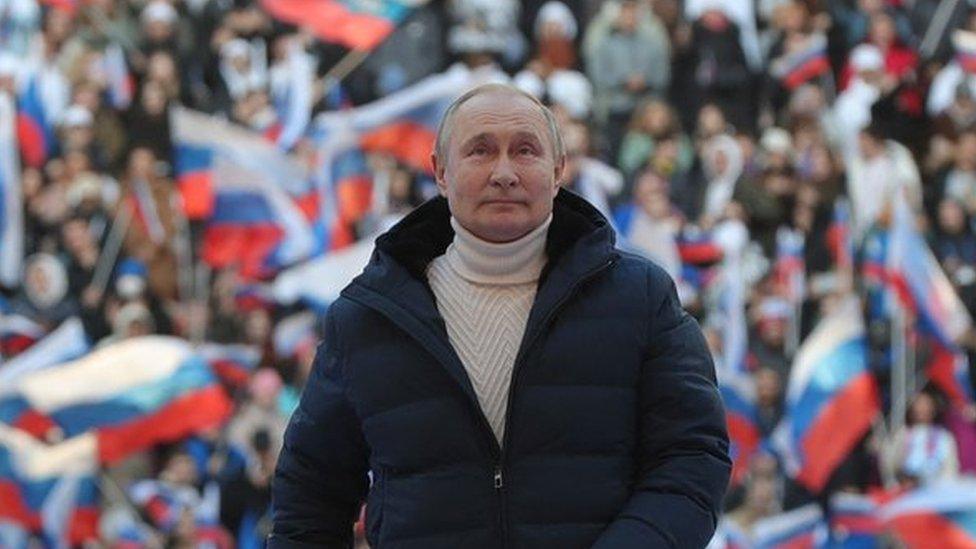Petr Pavel: Ukraine deserves to join Nato, says new Czech leader
- Published
- comments
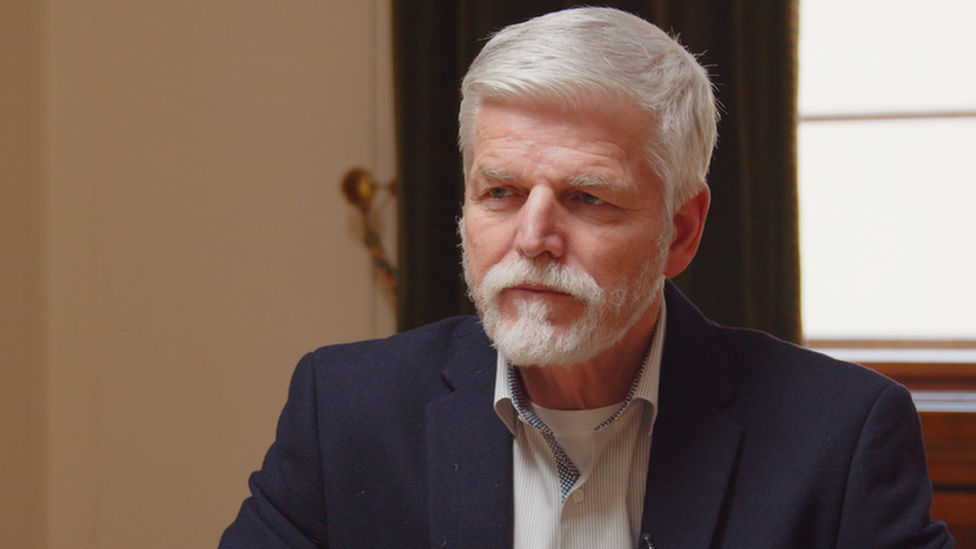
Czech President-elect Petr Pavel was chair of the Nato military committee from 2015-2018
Czech President-elect Petr Pavel has told the BBC that Ukraine should be allowed to join Nato "as soon as the war is over".
Mr Pavel, a retired Nato general, said Ukraine would be "morally and practically ready" to join the Western alliance once the conflict had ended.
In his first broadcast interview with the international media since his election, Gen Pavel gave a robust defence of Western military support to Kyiv, saying there should be "almost no limits" to what countries should send.
Speaking from the renaissance Hrzansky Palace, a few hundred metres from Prague Castle, he said for him sending Western fighter planes such as F-16s was "not taboo", but he was unsure they could be delivered in a timeframe that could prove useful to Kyiv.
US President Joe Biden has ruled out sending F-16s this week, although France's Emmanuel Macron has said nothing is excluded.
"I am proud of my country being one of the first to provide Ukraine with significant military help," he told the BBC.
The Czech Republic was the first Western country to send tanks and infantry fighting vehicles - Soviet-designed T72s and BMP1s - to Kyiv, part of a series of deliveries of heavy weapons that reportedly began as early as March 2022.
Almost a year on, after much agonising and soul-searching, countries including the UK, the United States and Germany have begun answering Kyiv's repeated calls to send modern, Western-made tanks such as Leopard 2s, Challenger 2s and M1 Abrams.
"Probably very few people could imagine that Western countries would be willing to provide Ukraine with modern main battle tanks or long-range artillery or anti-aircraft systems," he went on.
Now, he said, it was reality.
"But at the same time we see it's still not enough" to counter Russia's significant resources of men and materiel, he added.
He acknowledged Kyiv's disappointment at the speed of deliveries, especially Western tanks, which were explicitly designed to punch holes - literally and figuratively - through Soviet armoured formations.
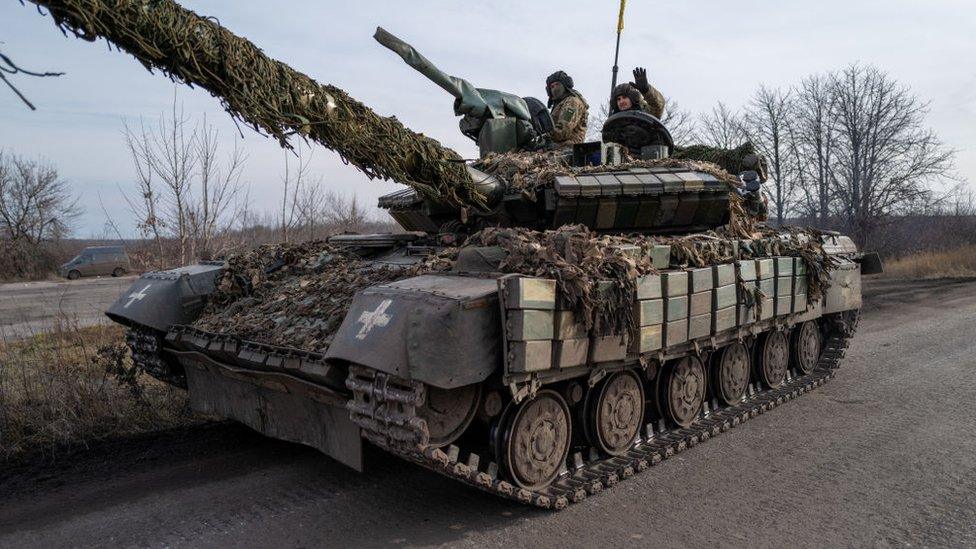
Western nations have finally agreed to provide modern tanks to Ukraine, which is currently relying on Soviet-era models
Ukraine has asked for 300 such tanks and says the West has so far promised to send at least 120. But Gen Pavel said he hoped that would speed up - especially if Russia launches its anticipated spring offensive.
The president-elect brushed aside the view - long held in some European capitals, especially Berlin - that such deliveries could be seen as "escalation".
Russia has warned that increased supplies of Western weapons will lead to Nato countries increasingly becoming directly involved in the conflict.
"We have no alternative," he said. "If we leave Ukraine without assistance, they would most probably lose this war. And if they lose - we all lose."
President-elect Pavel also said that he and other European leaders had a duty to explain to their sceptical - and in many cases frightened populations - of the sense in helping Ukraine.
"Our cities are not being destroyed by Russian artillery and missiles. But our future could be destroyed if we don't support Ukraine to a successful end to this conflict."
And he also dismissed claims - among them from the man who stood against him this weekend, former Prime Minister Andrej Babis - that he was closing the door to diplomacy.
"Once there is even the slightest chance of peace talks, let's support it. But there are no signs of it from the Russian side," said Mr Pavel, who was often portrayed as a warmonger during the campaign.
"What needs to be said is this: the end of war is entirely in Russian hands. It would take only one decision from President Putin to withdraw his forces from Ukraine and the war is over."
And once it was over, he told the BBC, he could see a clear place for Ukraine in Nato.
"The Ukrainian military will be probably the most experienced military in Europe. Ukraine deserves to be part of a community of democratic countries."
Including Nato? I asked.
"I believe they really deserve it."
Related topics
- Published28 January 2023
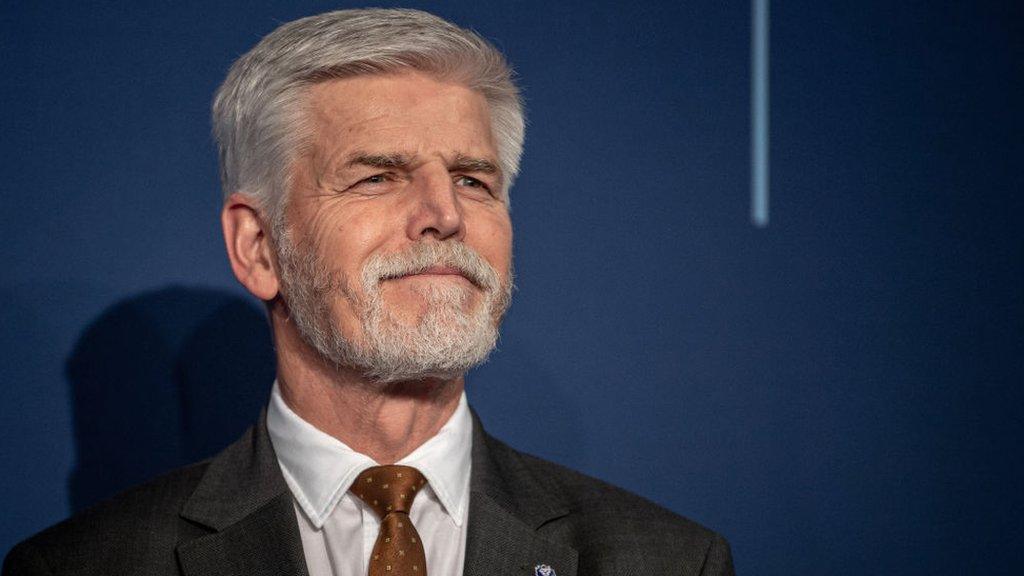
- Published17 February
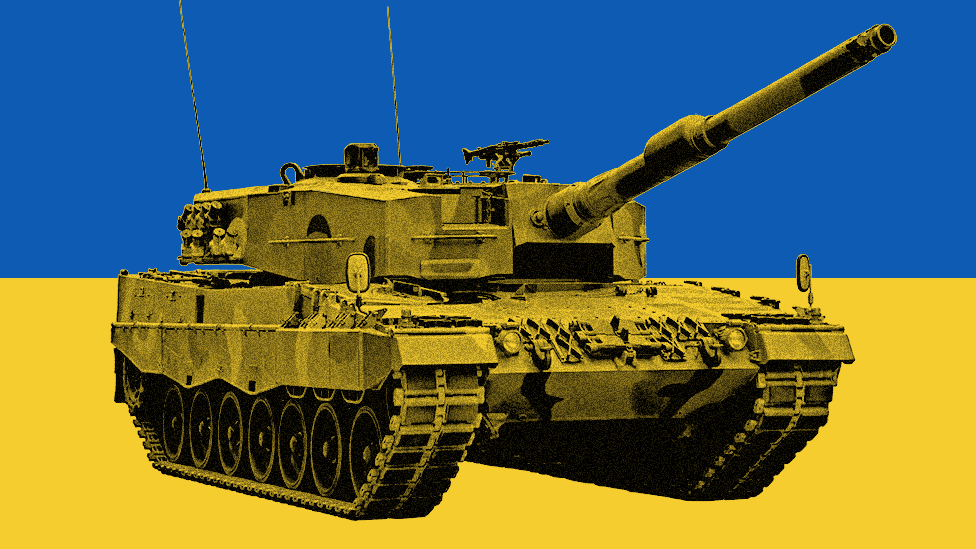
- Published27 December 2022
